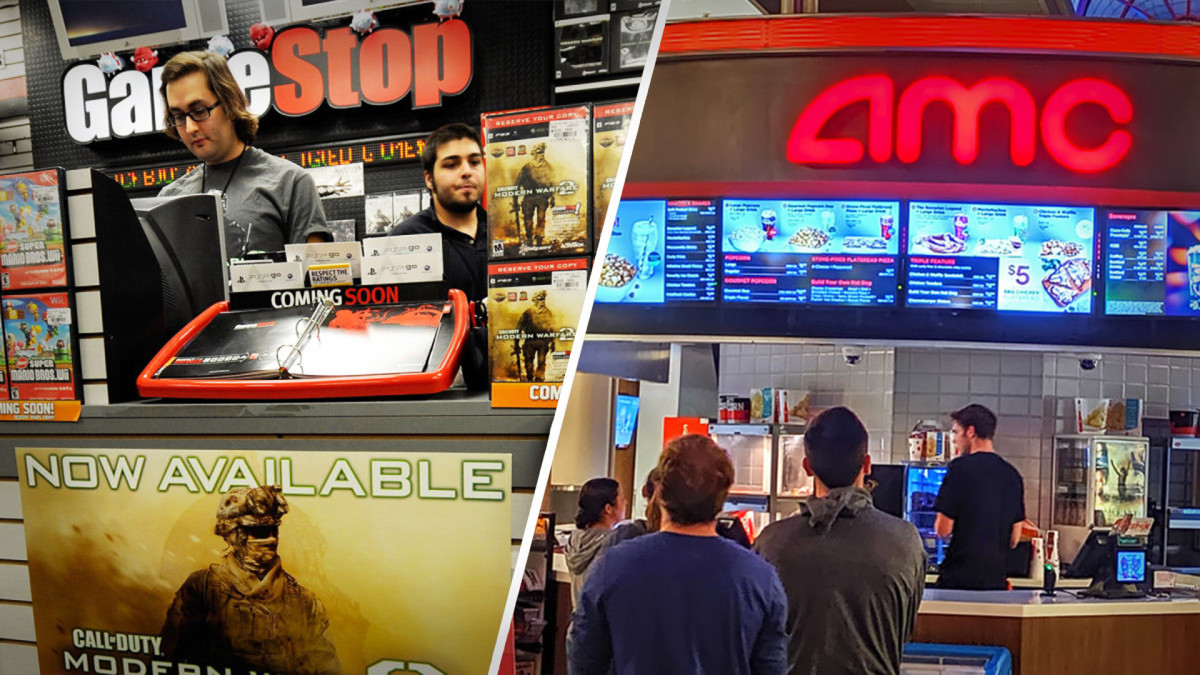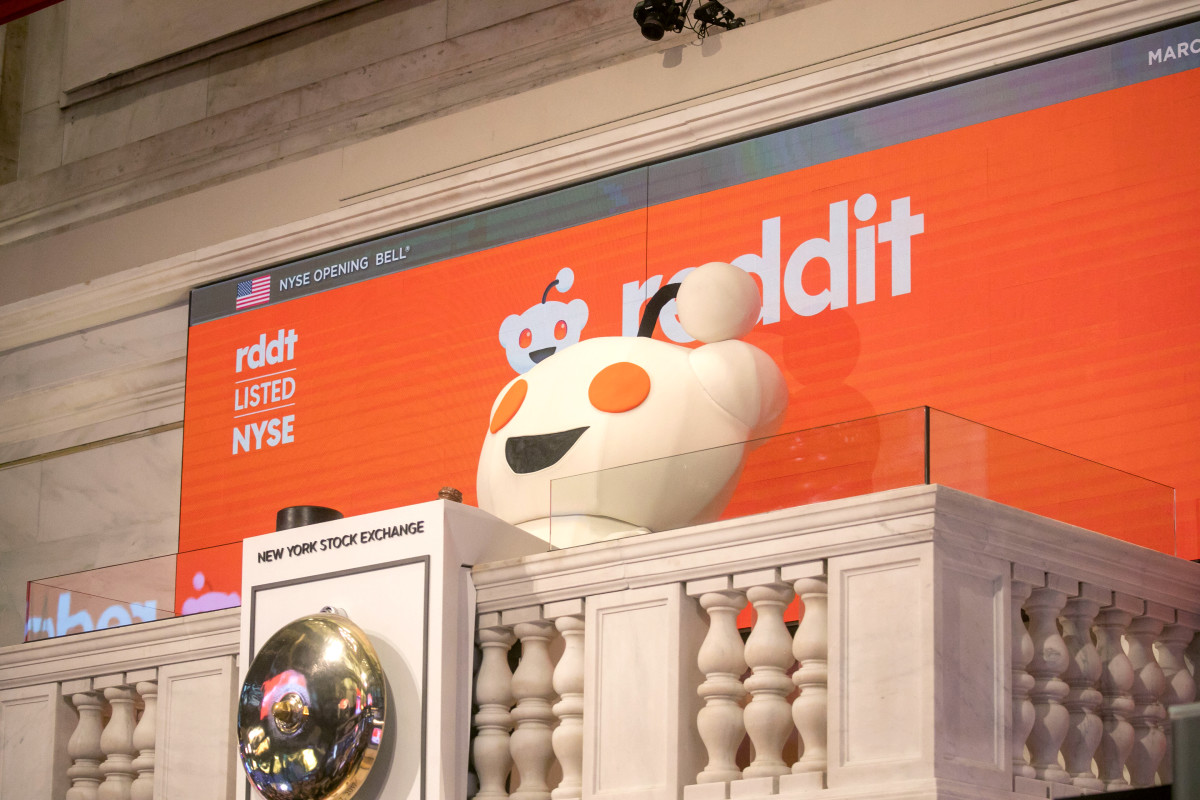
Retail investors, who took Wall Street by storm three years ago with a surge of investment in a few key stocks, powered in part by a Reddit social media network collective, are looking primed for a comeback as the stock market tests new record highs.
The so-called meme stock craze, which began with a massive surge in the money-losing video game retail GameStop in early 2021, led to a host of outsized moves in a handful of favored names, triggered the near collapse of several hedge funds and launched a Congressional inquiry into the fairness of certain Wall Street practices.
Since then, however, the meme stock phenomenon has lost a notable amount of steam. The Chapter 11 bankruptcy of home retail Bed Bath & Beyond, the ongoing declines, and controversial capital raisings of movie theatre chain AMC Entertainment (AMC,) and the long and uninterrupted decline in Canadian cybersecurity group BlackBerry have all contributed to a declining influence on share prices.
But meme stock names are back in the headlines this week, with a new ticker dominating retail flows, underscoring the power of smaller investors and the risks they can face if things go wrong.
It's fitting, in some ways, that the meme stock renaissance is so closely tied to Reddit, the social media network that hosted the 'wallStreetbets' forum responsible for much of the movement's past momentum.

Reddit (RDDT) was listed on the New York Stock Exchange last week, rising nearly 50% from its $34 IPO price on its trading debut, and trading nearly $60 per share in early action on March 27.
The shares were last marked 11% lower at $57.92 each midday Wednesday.
You Reddit there first
The listing valued the group at $6.4 billion. It included hefty participation from its longtime users, who were allocated around 8% of Reddit's pre-IPO shares, with other retail investors offering stock through brokerages such as Robinhood Markets (HOOD) .
Reddit, like many other companies in the social media space, is looking to harness the power of AI to boost profits and sales but noted that the Federal Trade Commission is looking into some of its licensing deals.
It announced in February that it had licensed access to its data trove to Google-parent Alphabet, reportedly worth $60 million annually.
The power of retail investors was then back on display earlier this week with the debut of Trump Media & Technology Group shares on the Nasdaq.
Trump Media & Technology, which trades under the ticker-symbol DJT, is largely owned by former President Donald Trump and houses his 'Truth Social' social media network, which he founded after being banned from Twitter and Facebook following the January 6 Capitol insurrection.
Related: Reddit user makes $20,000 during stock's first day of trading
Despite having revenues of just $3.4 million over the first nine months of last year, compared to Facebook owner Meta Platform's $40.1 billion over the fourth quarter alone, Trump Media & Technology Group carried a market value of just under $9 billion.
The lack of clarity on profits, or indeed a compelling business plan, hasn't hampered its post-listing performance, either, as retail investors, many of whom see the stock as a vehicle to either support the former President's finances or bet on his chances for re-election in November, pile into the stock.
Nonetheless, TMTG shares were back on the move Wednesday, rising 17% to $67.96 each.
GameStop started it
"I can't find a way to value it," Jim Cramer said on CNBC Wednesday. "Like him or hate him, know that this stock is overvalued," he added on his verified social media account on X.
However, the lessons from GameStop, patient zero in the meme stock movement, can't be ignored.
Retail buyers lifted the value of the Grapevine, Texas-based group to more than $22.1 billion in early 2021 when it was generating just $1.2 billion in revenues and experiencing a two-year run without a quarterly profit.
GameStop shares opened with a market capitalization of just $4 billion this morning after posting a smaller-than-expected holiday quarter profit of 22 cents per share on revenues that fell nearly 20% from a year ago to $1.79 billion.
There's also been little evidence that GameStop CEO Ryan Cohen, perhaps the biggest and most influential investor in the meme stock craze, has improved the group's prospects.
Related: ‘Dumb Money’ cast: Meet the real people behind GameStop's Reddit rally
Cohen assumed management of GameStop's "investment policy" which it said would "place the personal resources of Mr. Cohen at risk in substantially the same manner as the Company in connection with investment decisions made on behalf of the Company", according to Securities and Exchange Commission filings.
"GameStop delivered a large sales decline as it continues to deal with a mix shift in software sales, declining hardware sales, fewer large console releases, and the growth of subscription services," said Wedbush analyst Michael Pachter.
"The demise of GameStop is outside the 12-month window we use for our price target, but we expect the company’s demise at some point later this decade," said Patcher, who lowered his price target on the stock by 40 cents, to $5.60 per share.
GameStop was marked 15% lower at $13.23 each in midday dealing.
Stocks in the Hood
However, despite their at-times rocky relationship with the online brokerage, Meme stock investors can always go back to Robinhood Markets.
Robinhood drew the ire of retail investors at the peak of the GameStop surge in January of 2021 when it restricted some accounts from trading, citing "liquidity requirements" from clearing houses.
More Wall Street Analysts:
- Analyst unveils Nvidia stock price 'line in the sand'
- Analyst revamps homebuilder stock price target before Fed rate call
- Analysts revamp Nvidia price targets as Blackwell tightens AI market grip
But it's also seen a big jump in users, with assets under custody rising to a record $118.7 billion last month thanks to the ongoing surge in retail stock and cryptocurrency trading tied to the launch of a series of Exchange Traded Funds backed by bitcoin.
Bitcoin has rallied sharply this year ahead of its much-anticipated "halving" in April, trading near $70,000
Robinhood shares, which have surged over 55% this year, were marked 5% higher in early trading on March 27 after unveiling plans to start issuing Robinhood-branded credit cards.
"Robinhood's management has been teasing the credit card launch for more than a few months, and we think the features live up to the hype, and that it should get attention in the market, particularly the 3% cash back, which is industry-leading," said JMP Securities analyst Devin Ryan.
Related: Veteran fund manager picks favorite stocks for 2024







